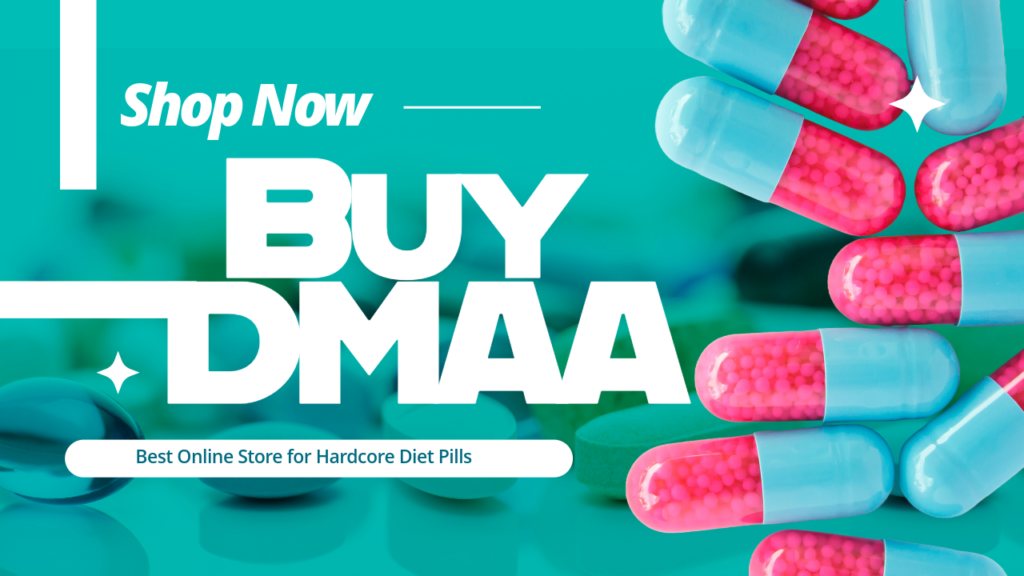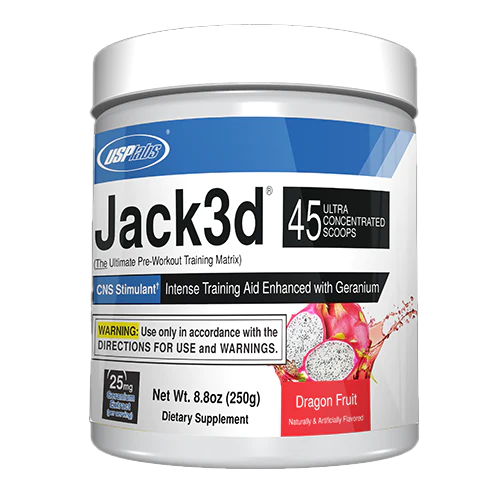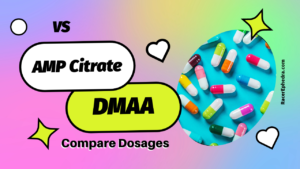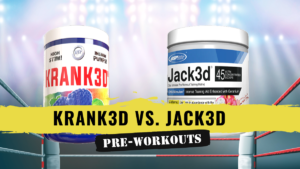If you’re someone who is interested in boosting your athletic performance or enhancing your workout routine, you may have come across DMAA pre workout sports supplement powder. DMAA, also known as 1,3-dimethylamylamine, is a popular ingredient in many sports supplements that claim to provide increased energy, focus, and endurance during exercise. In this comprehensive guide, we will explore everything you need to know about buying DMAA pre workout sports supplement powder. From its benefits and side effects to its legality and dosage recommendations, we will cover it all. So let’s dive in and discover the world of DMAA!

What is DMAA?
DMAA, or 1,3-dimethylamylamine, is an amphetamine derivative that is often marketed as a natural stimulant in sports performance and weight loss products. It is commonly found in pre workout supplements and is claimed to increase energy, focus, and endurance during exercise. However, it’s important to note that DMAA is not a dietary ingredient, and products containing DMAA that are marketed as dietary supplements are illegal and violate the law.
It is often marketed as a dietary supplement under names like methylhexanamine or geranium extract. DMAA is commonly referred to as a “natural” stimulant, but it’s important to note that the FDA has not found any reliable scientific evidence suggesting that DMAA occurs naturally in plants.
Originally, DMAA was approved as a drug for nasal decongestion; however, it is no longer approved for this use. In fact, there is no recognized medical use of DMAA today. This means that any product claiming to have medical benefits from DMAA should be viewed with skepticism.
Stimulant Ingredient
One of the concerns surrounding DMAA is its potential interactions with other stimulant ingredients. When combined with other stimulants, DMAA may increase the risk of adverse effects such as increased heart rate, elevated blood pressure, and even more serious cardiovascular events.
It’s worth noting that the FDA has taken action against manufacturers and distributors of DMAA-containing products. They have issued warning letters and even pursued legal action to remove these products from the market due to safety concerns.
If you are considering using a product that contains DMAA, it is essential to consult with a healthcare professional before doing so. They can provide you with accurate information about the potential risks and benefits associated with DMAA use.
Especially, DMAA is an amphetamine derivative that has been marketed in sports performance and weight loss products. While it was once approved for nasal decongestion, it is no longer recognized for any medical use. The FDA has expressed concerns about its safety, particularly when combined with other stimulant ingredients. It’s crucial to approach any product containing DMAA with caution and seek professional advice before use.

Edge of Insanity delivers one of the strongest pre-workout supplements on the market. Feel the power of nootropics with every training session.
The Legality of DMAA
DMAA was once approved as a drug for nasal decongestion, but it is no longer approved for this use. Today, DMAA is considered an unsafe food additive by the FDA. The FDA has issued warning letters to companies that market DMAA-containing products as dietary supplements, and they continue to advise consumers not to buy or use these products due to the health risks they pose. It’s crucial to be aware of the legality of DMAA before considering purchasing any supplements that contain it.
The legality of DMAA (dimethylamylamine) has been a topic of discussion and concern for many years. While it was once a popular ingredient in dietary supplements and pre-workout products, the FDA (Food and Drug Administration) has taken a strong stance against its use.
Starting in 2012, the FDA began issuing warning letters to companies, notifying them that marketing products containing DMAA violates the law. This was due to the potential health risks associated with the ingredient. When the FDA finds products containing DMAA during facility inspections, they discuss their concerns with the firms and give them an opportunity to voluntarily recall and destroy these violative products.
Warning Letters
It’s important to note that most companies that received warning letters have since stopped distributing products with DMAA. They have complied with the FDA’s requests and removed DMAA from their formulations. This shows that many companies take the FDA’s warnings seriously and prioritize consumer safety.
However, there have been cases where companies chose not to comply voluntarily. In such instances, the FDA has taken further action. For example, in 2013, the FDA administratively detained two DMAA-containing products, OxyElite Pro and Jack3d, after USPLabs initiated a voluntary recall. This detention meant that the products were prevented from being distributed until further investigations were conducted.
The FDA’s strong stance against DMAA is based on concerns about its safety. The ingredient has been associated with adverse events such as heart problems, including heart attacks, seizures, and even death. These risks are especially concerning when DMAA is combined with caffeine or other stimulants commonly found in dietary supplements.
Due to these concerns, DMAA is considered a prohibited substance by many sporting organizations, including the World Anti-Doping Agency (WADA). Athletes are advised to avoid using products containing DMAA to ensure compliance with anti-doping regulations.
Explicitly, the legality of DMAA is questionable due to its potential health risks. The FDA has issued warning letters to companies marketing DMAA-containing products, and most have complied by ceasing distribution of such products. However, in cases where companies do not comply voluntarily, the FDA takes further action to protect consumer safety. It is essential for consumers to be aware of the potential risks associated with DMAA and to make informed choices when selecting dietary supplements or pre-workout products.
DMAA vs. DMHA: What’s the Difference?
DMHA, or 2-aminoisoheptane, is a compound that is often compared to DMAA due to their similar effects on the body. Both DMAA and DMHA are stimulants that can increase energy and focus. However, DMHA is considered to have a milder effect compared to DMAA. It’s important to note that the FDA has also raised concerns about the safety of DMHA, and it’s always advisable to consult with a healthcare professional before using any supplement containing either DMAA or DMHA.
The Benefits of DMAA
DMAA is often touted as a supplement that can enhance athletic performance and improve workout results. Some potential benefits of DMAA include:
- Increased energy levels: DMAA is believed to stimulate the central nervous system, leading to increased energy and alertness during workouts.
- Enhanced focus and concentration: DMAA may help improve mental focus and concentration, allowing for a more productive workout session.
- Improved endurance: DMAA is thought to delay fatigue by increasing oxygen delivery to the muscles, which can result in improved endurance during exercise.
It’s important to note that the potential benefits of DMAA are based on anecdotal evidence and have not been extensively studied. The effects may vary from person to person, and it’s crucial to approach DMAA supplementation with caution.
Side Effects of DMAA
While DMAA may offer potential benefits, it’s essential to be aware of the possible side effects associated with its use. Some reported side effects of DMAA include:
- Increased heart rate and blood pressure: DMAA can elevate heart rate and blood pressure, which may pose risks for individuals with pre-existing cardiovascular conditions.
- Cardiovascular problems: Taking DMAA, especially in combination with other stimulant ingredients like caffeine, can increase the risk of cardiovascular problems such as shortness of breath, chest tightness, and even heart attack.
- Neurological and psychological conditions: DMAA has been linked to seizures and other neurological and psychological conditions, although more research is needed to fully understand these associations.
It’s important to consult with a healthcare professional before using DMAA or any other supplement to ensure it is safe for you and to discuss potential risks and side effects.
DMAA as a Dietary Supplement Ingredient
DMAA (dimethylamylamine) is a dietary supplement ingredient that has gained quite a bit of attention in recent years. Many people are curious about its legality, safety, and effectiveness. So, let’s dive into the topic and explore what DMAA is all about.
Firstly, for DMAA to be legally sold as a dietary supplement, it must be a naturally occurring substance with a documented history of use prior to 1994. This requirement is set by the U.S. Food and Drug Administration (FDA) under the Dietary Supplement Health and Education Act (DSHEA). This means that any synthetic forms of DMAA or those not meeting the criteria cannot be legally sold as a dietary supplement.
Interestingly, the evidence supporting the sale of DMAA-containing supplements revolves around a single study. This study, published in the now defunct Journal of the Guizhou Institute of Technology, examined geranium oil extracted from the fresh leaves and stems of Pelargonium graveolens. The researchers conducted a gas chromatography and mass spectrometry analysis and found that the geranium oil contained less than 0.7% DMAA.
Unfortunately, the study does not provide detailed information about their methodology, which can be a cause for concern. However, it is worth noting that geranium oil has been used in traditional medicine for various purposes for centuries. So, it is possible that DMAA is naturally occurring in geranium oil.
Safety and Potential Risks
It’s important to mention that there are differing opinions on the safety and effectiveness of DMAA as a dietary supplement ingredient. Some studies have suggested potential risks associated with DMAA use, including increased blood pressure, heart problems, and even death in extreme cases. On the other hand, proponents of DMAA argue that when used responsibly and in moderation, it can provide benefits such as increased energy and improved athletic performance.
As with any dietary supplement or ingredient, it is crucial to consult with a healthcare professional before using DMAA or any product containing it. They will be able to assess your individual circumstances and advise you on whether DMAA is suitable for you.
Evidently, DMAA is a dietary supplement ingredient that must meet specific criteria to be legally sold as a supplement. The evidence supporting its sale relies on a single study examining the presence of DMAA in geranium oil. However, there are conflicting opinions regarding its safety and effectiveness. Therefore, it is essential to seek professional advice before considering the use of DMAA or any DMAA-containing supplements. Your health and well-being should always be the top priority.
DMAA Containing Supplements
| Supplement Name | Manufacturer |
| Jack3D | USP Labs |
| Oxyelite Pro | USPlabs |
| Lipo 6 Black | Nutrex Research |
| Hemo Rage Black | Nutrex Research |
| PWR Ultra | iSatori Tech |
| Neurocore Powder | MuscleTech |
| Hydroxystim | MuscleTech |
| Lean EFX | Fahrenheit Nutrition |
| Napalm | Muscle Warfare |
| Nitric Blask | Sports Nutrition |
| Biorhythm SSIN | International |
| Juice | Exclusive Supplements |
| Code Red | Muscle Meds |
| Methylhex4,2 | SEI Pharma |
| Arson Fat Burner | Muscle Asylum Project |
| Spirodex | Gaspari Nutrition |
Geranium Supplements
Geranium supplements have gained quite a bit of attention in recent years, particularly due to the presence of 1,3-Dimethylamylamine (DMAA) in these products. DMAA is a stimulant that can be found in various pre-workout supplements and is often claimed to be a natural component of geranium plants. However, the safety and origin of DMAA in these supplements have become the subject of intense debate.
In a recent study, researchers sought to shed some light on the source and composition of DMAA in geranium supplements. They analyzed the enantiomeric and diastereomeric ratios of two different synthetic DMAA compounds, as well as the total concentrations of DMAA and its stereoisomeric ratios in 13 different supplements, using gas chromatography.
Synthetic Standards and Commercial Supplements
The results of this study were quite interesting. Firstly, the researchers found that the stereoisomeric ratios of DMAA in both the synthetic standards and the commercial supplements were indistinguishable. This suggests that the DMAA present in these supplements is likely to be synthetic in nature.
Furthermore, the study also revealed that the concentration of DMAA varied widely across the different supplements analyzed. This highlights the need for consumers to exercise caution when selecting geranium supplements, as the actual dosage of DMAA may not always be accurately reflected on the product labels.
It’s important to note that DMAA has been associated with various health concerns and has even been banned by regulatory authorities in some countries. These concerns include elevated heart rate, increased blood pressure, and even cases of serious side effects such as stroke and death. Therefore, it is crucial for individuals considering the use of geranium supplements to consult with their healthcare professionals before incorporating them into their routine.
Formerly, while geranium supplements may claim to contain natural components such as DMAA, it is evident from research that the DMAA present in these products is likely to be synthetic. The concentration of DMAA can vary significantly across different supplements, so consumers need to exercise caution and seek professional advice before using them. As always, prioritizing safety and informed decision-making should be paramount when it comes to choosing any dietary supplement.

The science behind GABA as a pre-workout ingredient. The power of nootropics to increase weight training performance.
How to Buy DMAA Pre Workout Sports Supplement Powder
If you have decided to purchase DMAA pre workout sports supplement powder, it’s crucial to do so from reputable sources. Here are some tips to help you buy DMAA safely and effectively:
- Research the brand: Before purchasing any DMAA supplement, research the brand and ensure they have a good reputation for producing high-quality products. Look for customer reviews and feedback to get an idea of the brand’s reliability.
- Check for third-party testing: Look for supplements that have undergone third-party testing to ensure their safety and quality. This testing can provide reassurance that the product contains the ingredients it claims to have and is free from contaminants.
- Read the label: Carefully read the product label to ensure it contains DMAA as an ingredient. Look for alternative names for DMAA, such as 1,3-DMAA, dimethylamylamine, or geranium extract, as these may indicate that the product contains DMAA.
- Consider dosage recommendations: Follow the dosage recommendations provided by the manufacturer or consult with a healthcare professional to determine the appropriate dosage for your needs. It’s important not to exceed the recommended dosage to avoid potential side effects.
- Be aware of the legal status: Keep in mind that DMAA is considered an unsafe food additive by the FDA. While it is still available in some supplements, it’s crucial to understand the legal implications and potential risks associated with using DMAA.
Foodborne Doping Stimulants for Athletes
Foodborne doping poses a significant challenge in the world of sports, with athletes and coaches needing to be acutely aware of the substances that can lead to unintentional doping violations. The World Anti-Doping Agency (WADA) has identified several classes of prohibited substances, many of which can be inadvertently consumed through food or dietary supplements. Among these, stimulants are particularly prevalent in foodborne doping cases.
Stimulants like methylhexaneamine, amphetamine, and ephedrine are commonly found in dietary supplements and certain foods. For instance, ephedrine, which can enhance athletic performance by increasing alertness and reducing fatigue, is naturally present in Ephedra plants. However, its use is strictly regulated in sports, with urinary concentrations exceeding 10 μg/ml considered a doping violation.
Another concerning stimulant is methylhexaneamine, which has been linked to numerous positive doping tests since its inclusion in WADA’s prohibited list in 2011. This substance is often marketed as a “natural” ingredient derived from geranium plants, though its presence in many supplements is due to artificial addition rather than natural occurrence.
Athletes must exercise extreme caution when using dietary supplements, as these products can be contaminated with prohibited substances or mislabeled. For example, the Australian Sports Anti-Doping Authority has reported cases where athletes tested positive for methylhexaneamine after using supposedly “clean” supplements. Similarly, substances like 2-aminoisoheptane (octodrine) and sibutramine have been found in supplements, leading to inadvertent doping violations.
It’s crucial for athletes and coaches to understand that the responsibility for what enters an athlete’s body ultimately lies with them. Thorough research, consultation with sports nutrition experts, and choosing supplements from reputable sources are essential steps in preventing unintentional doping. As the line between natural presence and artificial addition of these substances can be blurry, maintaining a high level of vigilance is paramount in navigating the complex landscape of sports nutrition and anti-doping regulations.
Conclusion
DMAA pre workout sports supplement powder is a popular choice for individuals looking to enhance their athletic performance and improve their workout results. However, it’s essential to approach DMAA supplementation with caution, considering the potential side effects and legal implications. Before purchasing any DMAA supplement, it’s crucial to do thorough research, consult with a healthcare professional, and ensure you are buying from reputable sources. Remember, your health and safety should always be the top priority when considering any dietary supplement.
References
U.S. Food & Drug DMAA in Products Marketed as Dietary Supplements August 2018
Regulated Product(s)
Cohen PA. DMAA as a Dietary Supplement Ingredient. Arch Intern Med. 2012;172(13):1038–1039. doi:10.1001/archinternmed.2012.1677
A. R. Marin , S. R. Pezeshki , P. H. Masschelen & H. S. Choi (1993) Effect of dimethylarsenic acid (DMAA) on growth, tissue arsenic, and photosynthesis of rice plants, Journal of Plant Nutrition, 16:5, 865-880, DOI: 10.1080/01904169309364580
U.S. Food & Drug Updated review of available information pertaining to 1,3-dimethylamylamine:
lack of general recognition of safe ty for its use in foods. CAS# 105-41-9
Zhang, Y., Woods, R.M., Breitbach, Z.S. and Armstrong, D.W. (2012), 1,3-Dimethylamylamine (DMAA) in supplements and geranium products: natural or synthetic?. Drug Test. Analysis, 4: 986-990. https://doi.org/10.1002/dta.1368
Wei Chen, Xiaoyu Cheng, Yingnan Ma, Ning Chen, Foodborne doping and supervision in sports, Food Science and Human Wellness, Volume 12, Issue 6, 2023, Pages 1925-1936,
ISSN 2213-4530, https://doi.org/10.1016/j.fshw.2023.03.001




